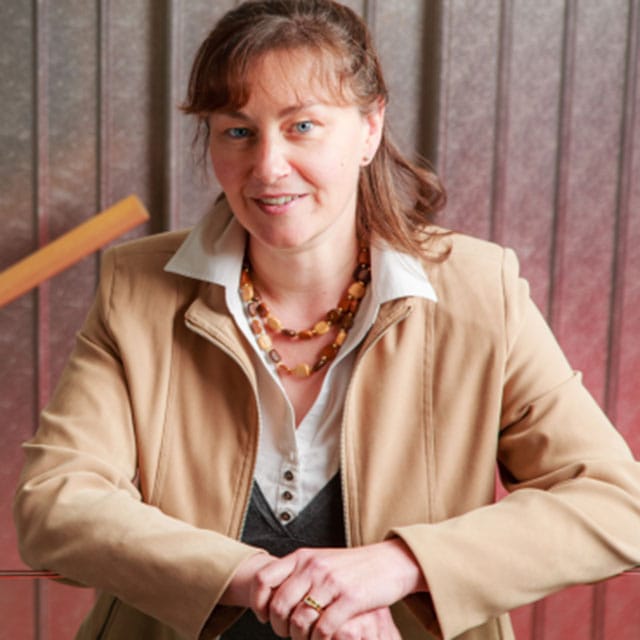Do the math: award a boost for women in science
The opportunity to help other women continue their scientific research is the cream on top of the major fellowship a Monash mathematician has received. Prof Kate Smith-Miles, who will become an ambassador for women in science, was one of two professors at the university to earn more than $5...

The opportunity to help other women continue their scientific research is the cream on top of the major fellowship a Monash mathematician has received. Prof Kate Smith-Miles, who will become an ambassador for women in science, was one of two professors at the university to earn more than $5 million in research grants.
By LUKE MORTIMER

A Monash University professor is determined to boost women's representation in science and technology, after winning the Georgina Sweet award.
Professor Kate Smith-Miles, a mathematician, won the award in addition to an Australian Research Council (ARC) laureate fellowship, after convincing an ARC panel she was the best candidate for improving female representation in research.
The award – worth $100,000 – accounts for a fraction of the $2.83 million she received under the fellowship to further her own work on algorithms, but Prof Smith-Miles said it carried a special responsibility.
“I have to spend the $100,000 over the next five years supporting other female researchers, so that’s a nice responsibility,” Prof Smith-Miles said.
The award honours University of Melbourne zoologist Georgina Sweet, who made significant contributions to the women’s rights movement early last century by fighting for equal representation for women in Australian universities.
As Australia’s first female acting professor, Ms Sweet raised the benchmark for the nation’s women researchers, and fought to have women admitted to the university senate.
Women are still underrepresented in the science and technology research industry, Prof Smith-Miles said, and the career disruption she encountered while having children – a five-year break from conferences – drives her determination to help women overcome hardship.
“When you have young children, as I have had, you often find that you’re out of the conference scene for a while. You don’t go to international conferences anymore because it’s just too hard with young children at home,” she said.
“You very quickly find yourself being isolated from the international research cutting edge, people forget about you for a while … and so it effects your career.”
Strategies she proposed in the application resemble those she implemented with the Monash Equal Opportunity for Women Committee, including helping women researchers through career disruptions – prolonged maternity leave, childcare costs, and childbirth.
“The Georgina Sweet Award will support those women who have a strong research profile but clearly are being impacted by having young children,” she said.
“Anything we can do to accelerate the time in which it takes for a woman to get back into the full swing of things is a good investment.”
Algorithm research
Under the ARC laureate fellowship, Prof Smith-Miles will work to improve research practices so researchers who create an algorithm can report its best uses, and its shortcomings.
She said her “ultimate goal” was to create a website for researchers to upload an algorithm to be scrutinised by novel test instances that reveal its limitations.
“They can then download a visualisation of where their algorithm is strong and where it is weak compared to other algorithms, and that’s the kind of evidence that they can then include in their research paper,” she said.
“It’s about developing new methodologies to allow researchers to more honestly report the strengths and weakness of their algorithms.
“We’re trying to develop better research practices.”
Prof Smith-Miles said this model for algorithm testing had potential to prevent disasters – on a lesser scale, this might include class crowding, too many 9.00am lectures, or class clashes during university timetable development, whereas serious accidents could include space travel catastrophes.
“There have been many documented cases throughout history where inadequate software testing caused disasters,” she said.
“There’s this focus of shining a positive light on your algorithm to make it look good by hand selecting the problems that you choose to report.”
Nanotechnology research brings second major award to Monash
Prof Thomas Davis, in Monash's Faculty of Pharmacy and Pharmaceutical Sciences, also received an ARC laureate fellowship, taking the combined total the university received in the awards to $5.3 million.
He said the fellowship had a significant teaching component to “train the next generation of scientists”.
A nanotechnologist, Prof Davis said his research into the interaction of nanoparticles would lay the groundwork for medical technicians to build medical imaging devices that enable treatment delivery monitoring through non-invasive methods.
“[We’re] actually trying to do the chemistry and science in building the ability to be able to build those things,” he said.
“The overall outcomes of my work would be improved healthcare, but not immediately. I’m nowhere near a hospital for instance. I’m really in a university research lab, developing new methods that down the line could help surgeons and doctors.”
He said his application for the fellowship needed to show how his research would benefit the public.
“You have to show clear links to how you’re going to benefit the Australian community.”
All research completed under the fellowship scheme will be released into the public domain.





